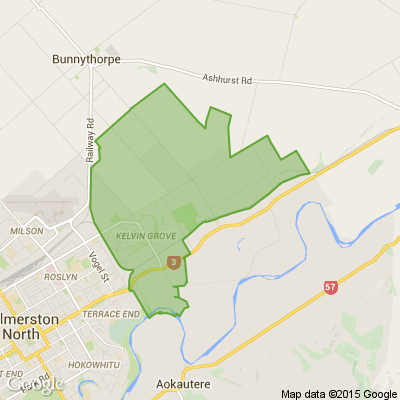
Know what’s happening
Access the private noticeboard for verified neighbours near you. Keep informed about any suspicious activity, send urgent updates to your neighbours when required and discuss emergency planning.
Get to know your neighbours
Browse the directory and start getting to know your neighbours. Don’t want to post to the whole neighbourhood? Send a private message.
Buy, sell and give away
Want to declutter your garage? Buy some used household items? Give away some garden stuff? Become a verified neighbour to browse and post items for sale. Trading is simple when everyone lives nearby.


Have you made your house all Christmassy yet?
Why not share a snap to be in to win spot prizes! (and the title of NZ's Merriest Home)

Thank you for using Neighbourly
You may receive an email confirmation for any offer you selected. The associated companies will contact you directly to activate your requests.
The Team from Neighbourhood Support New Zealand
Love is in the air this month! We’re not just talking about Valentine’s Day, we’re talking about this month’s national campaign.
Our theme for February is all about finding ways to show your home and community a little extra love and care. Whether it’s organising a street clean up, … View moreLove is in the air this month! We’re not just talking about Valentine’s Day, we’re talking about this month’s national campaign.
Our theme for February is all about finding ways to show your home and community a little extra love and care. Whether it’s organising a street clean up, helping a neighbour tidy up their property, collaborating on a mural, putting together a working bee, or installing a communal pātaka or library - there are countless ways to make our neighbourhoods more beautiful and enjoyable for everyone.
Share your tips, projects, photos and experiences with us by tagging us in your social media posts or emailing us at:
info@neighbourhoodsupport.co.nz

Kevin from Milson
Dendrobium kingianum, commonly known as the pink rock orchid, is a flowering plant in the orchid family Orchidaceae and is endemic to eastern Australia. It usually grows on rocks, rarely as an epiphyte, and has thin, spreading leaves and spikes of up to fifteen, usually pink flowers in late winter … View moreDendrobium kingianum, commonly known as the pink rock orchid, is a flowering plant in the orchid family Orchidaceae and is endemic to eastern Australia. It usually grows on rocks, rarely as an epiphyte, and has thin, spreading leaves and spikes of up to fifteen, usually pink flowers in late winter to spring. Wikipedia
I am selling my lovely Orchid due to cutback of plants.
Usually just keep it at the back of the house and bring to my frontage in the spring when it is a mass of gorgeous pink flowers. Looks after itself!! Look up on Google for pictures of this beautiful orchid.
Price: $40
Sheila from Hokowhitu
EXPLORE AND LEARN NEW OFFICE SKILLS.
Know how to:
• Design, layout and create documents
• Format data, produce tables and explore graphs
All resources provided.
Want more Information on course content and delivery.
Email our tutor at sbarrass.211@literacy.org.nz and course information will be … View moreEXPLORE AND LEARN NEW OFFICE SKILLS.
Know how to:
• Design, layout and create documents
• Format data, produce tables and explore graphs
All resources provided.
Want more Information on course content and delivery.
Email our tutor at sbarrass.211@literacy.org.nz and course information will be sent to you.

Kevin from Milson
These planters just look fabulous on a patio or deck. I had succulents in them and previously Money Trees.
They are 32cm high and have drainage holes.
Haven't given them a scrub up as feel they look better with a little ageing!!
Price: $30
Robert Anderson from Curtain Clean Palmerston North
Cockroaches are an extremely common household pest throughout all of New Zealand and although they make you shudder when you see them, they thankfully do not pose many health risks, however they can transmit diseases, so it is best to keep them out of your home. As with any pest the number one … View moreCockroaches are an extremely common household pest throughout all of New Zealand and although they make you shudder when you see them, they thankfully do not pose many health risks, however they can transmit diseases, so it is best to keep them out of your home. As with any pest the number one preventative measure is to keep your home and outside surrounding areas as clean as possible. We’ll talk through more information about the different types of cockroaches, how to prevent an infestation before it happens, and if needed how to kill cockroaches.
What are the 3 main types of cockroach?
Although there are thousands of different species of cockroach, here in New Zealand we tend to only deal with the following three culprits. They are all pests and have the potential to transmit diseases such as dysentery, salmonella and diarrhoea due to their eating habits. See below for more information on the pests most wanted list.
The Gisborne Cockroach
This is our native representative, although it was first introduced from Australia, they are usually not found in doors at all so if you spot one of these in your home, it was likely by accident such as being carried in through timber and firewood.
They commonly live outdoors in damp dark areas and feed on decaying forest matter, so if you happen to spot one of these, it might be worth just giving a helping hand to get it back outside again.
The American Cockroach
This is the most common species found in New Zealand and is known as a pest throughout the world. Despite the name this species is native to Africa and the Middle East. They have adapted very well to human living spaces as they prefer moist areas with warmer temperatures.
Classified as omnivores, they will eat many foods as well as materials including leather, beer, glue and book bindings. They have the potential to cause sickness in humans, from their odorous secretions and bacteria that they pick up and deposit on food and surface areas and so it is very important to keep your house as clean as possible.
The German Cockroach
Although the smallest of the cockroach species found in New Zealand, they are actually the biggest problem. They do not like cold temperatures to a point where they struggle to survive and so they will always look to go inside of buildings for warmth. They more commonly prefer restaurants, food processing facilities and hotels to residential.
They are defined as omnivore scavengers, meaning they eat everything the American Cockroach does as well as meats, starches, sugars and fatty foods.
Keep reading: www.curtainclean.co.nz...

Natasha from Ashhurst - Pohangina
104 Manchester St, Feilding
Opposites is a celebration of works by two artists who are opposites in every way. David Mawson captures natural scenes and landscapes in his beautiful acrylic paintings of water, bush and sky while Graham Brandreth-Wills captures our attention with outside-the-box … View more104 Manchester St, Feilding
Opposites is a celebration of works by two artists who are opposites in every way. David Mawson captures natural scenes and landscapes in his beautiful acrylic paintings of water, bush and sky while Graham Brandreth-Wills captures our attention with outside-the-box abstract art created using various mediums and surfaces.
Join us for the opening celebration of the Opposites exhibition this coming Tuesday, the 2nd of February, from 5pm at the Feilding and Districts Art Society, 104 Manchester St, Feilding.
Everyone is welcome to attend and admission is free.
The exhibition runs to Saturday the 20th of February.
Find us on Facebook: www.facebook.com...
Website: feildingartsociety.com...

Richard from Hokowhitu
Between 10.15pm 10.25pm friday night backing down manuka street round into moana st very slowly with boot open and male siting in boot very suspect anyone else catch anything

Quinton from Milson
I dont bank with them but got another scam text...dont fall for these traps!

Robert Anderson from Curtain Clean Palmerston North
We are passionate about fabrics and finding the right solutions for our customers. With over 110 years of experience in the textile industry we have compiled some of this knowledge and look forward to sharing it with you over the next year through our blog series – An Educational Yarn. Our … View moreWe are passionate about fabrics and finding the right solutions for our customers. With over 110 years of experience in the textile industry we have compiled some of this knowledge and look forward to sharing it with you over the next year through our blog series – An Educational Yarn. Our first topic explores the different characteristics of textile fibres.
Textile fibres are natural or synthetic structures that can be spun into yarn. Yarns are then woven, knitted or bonded into fabric. The inherent characteristics of fibre properties directly relate to the performance and required care and maintenance of the finished fabric, therefore understanding fibres and yarns will in turn help you to understand the how to apply specific fabrics within your interior schemes.
Natural Fibres: Occurring in nature; which are of animal, vegetable/plant or mineral origin.
COTTON (Plant Origin)
• A strong fibre, even stronger when wet, cotton has good natural durability.
• Can be affected by mildew however a mildew resistant finish can be applied to reduce this issue.
• Generally has reasonable sunlight resistance but should be protected with a quality lining when used as a drapery and protected from direct sunlight when used as an upholstery.
• It is an absorbent fibre which means it can move with changing humidity levels.
• May shrink with laundering but this can be reduced through a finishing process on the fabric known as sanforising.
Sunlight resistance can be greatly reduced in acidic polluted conditions.
SILK (Animal origin; an animal fibre that comes from the silkworm. The silkworm creates its cocoon from very long silk fibres which are harvested from mulberry trees.)
• It is naturally fine in texture, and colours beautifully.
• Its biggest disadvantage in furnishing is its sensitivity to UV light degradation (direct and reflected). Due to its sensitivity, it should not be used in direct sunlight or even bright light.
• An absorbent fibre, it has the potential to move in humid environments.
• Silk is a relatively strong fibre and can withstand a certain amount of abrasion, particularly when used in conjunction with
• a backing fabric.
• Unrivalled in splendour and smoothness, silk is regarded the most exclusive of all natural fibres.
LINEN
Plant origin; derived from cellulose fibres that grow inside the stalks of the flax plant.
• As with cotton it is affected by acidic pollution.
• Can be affected by mildew which will likely cause the fibre to deteriorate over time.
• Considered to be the strongest of the natural fibres; if constructed for upholstery it is very durable, particularly when blended with up to 10% nylon.
• Is regarded as a luxury fibre because of its lustre and texture.
• It is an absorbent fibre which means it can move with changing humidity levels
• Linen has moderate sunlight resistance and should be protected by a quality lining when used as a drapery and protected from direct sunlight when used as an upholstery.
Keep reading: www.curtainclean.co.nz...

Quinton from Milson
Hi all...this one is making the rounds...spam as we dont even bank with bnz....

Washing chicken doesn’t remove bacteria, it just spreads it around. The best way to protect your whānau from getting sick is to wash your hands and kitchen tools after touching raw chicken, and make sure you cook chicken all the way through. Juices
should run clear and there shouldn’t be any … View moreWashing chicken doesn’t remove bacteria, it just spreads it around. The best way to protect your whānau from getting sick is to wash your hands and kitchen tools after touching raw chicken, and make sure you cook chicken all the way through. Juices
should run clear and there shouldn’t be any pink meat in the centre.
Remember to Clean Cook Chill and check our easy food safety tips here.
The team at New Zealand Food Safety.
Find out more

Exceed - we fix windows and doors
HELP US FIND A NEW OFFICE IN PALMERSTON NORTH 🏠
Due to expanding business, Exceed we fix windows & doors team in Palmerston North is looking for new premises.
☑️ We are looking for a small SECURE commercial property between 58 and 80 square meters. Ideally we would prefer with a small … View moreHELP US FIND A NEW OFFICE IN PALMERSTON NORTH 🏠
Due to expanding business, Exceed we fix windows & doors team in Palmerston North is looking for new premises.
☑️ We are looking for a small SECURE commercial property between 58 and 80 square meters. Ideally we would prefer with a small office and toilet facilities but this is not essential.
📍 Location: Palmerston North
If you know of any premises that would be suitable please contact us or share this post with your friends!
📲 Phone: 027243 1441
📧 Email: neelthompson@exceed.co.nz
Thanks,
Exceed we fix windows and doors team 😊

Robert Anderson from Curtain Clean Palmerston North
Look, we have to be honest, curtain linings are not the sort of thing that will blow your hair back with sheer delight. It’s sort of hard to get excited about a functional item like this – a bit like getting excited about a new water heater, carpet underlay, or new gutters…! It’s usually … View moreLook, we have to be honest, curtain linings are not the sort of thing that will blow your hair back with sheer delight. It’s sort of hard to get excited about a functional item like this – a bit like getting excited about a new water heater, carpet underlay, or new gutters…! It’s usually the face fabric, the star of the show at the window that brings the pizazz, colour or texture to a space, with lining tucked in behind, performing the admirable duties of light blocking and fabric protecting.
However, these are virtues to be celebrated as they help us make bolder decisions about the drapery fabrics for our spaces. They are also not what linings once were, and many now have the capacity to stand alone as a super practical drapery in their own right, heralding a new era for a previously much maligned fabric category. Prepare to have your hair blown back boys and girls…
Where to Begin: Well, it’s important to establish the purpose of the lining – is this a room you plan on sleeping in till midday? Lucky you! You will need a blackout (sometimes called a blockout), which will completely block light filtration, allowing you to sleep easy in blissful darkness.
These are used in five-star hotels, and in the homes of shift workers or young children who need to be able to sleep at any time of the day without pesky circadian rhythms waking you up from the light. Once upon a time, blackout linings were desperately practical, coming in white or off white (if you were lucky) and with a three-pass coating on the back (three layers of acrylic based flock).
Keep reading: www.curtainclean.co.nz...

Christine from Ashhurst - Pohangina
Garage sale Saturday 30/1/21 31 Matapio Street Tokomaru 7am start
Negotiable
 Loading…
Loading…
Are you sure? Deleting this message permanently removes it from the Neighbourly website.
 Loading…
Loading…

 By Negotiation
By Negotiation



 Marketed by Andrea O'Donnell
Marketed by Andrea O'Donnell

 Buyers $1,100,000+
Buyers $1,100,000+



 Marketed by Taylor Quine
Marketed by Taylor Quine

 Enquiries Over $679,000
Enquiries Over $679,000



 Marketed by Aman Singh
Marketed by Aman Singh

 Buyers $499,000+
Buyers $499,000+



 Marketed by Akbar Fazal
Marketed by Akbar Fazal

 Buyers $579,000+
Buyers $579,000+



 Marketed by Catherine Richardson
Marketed by Catherine Richardson

 Buyers $395,000+
Buyers $395,000+



 Marketed by Nathan Mooney
Marketed by Nathan Mooney

 Deadline Sale
Deadline Sale



 Marketed by Taylor Quine
Marketed by Taylor Quine

 Buyers $720,000+
Buyers $720,000+



 Marketed by Catherine Richardson
Marketed by Catherine Richardson

 Buyers $889,000+
Buyers $889,000+



 Marketed by Blair Alabaster
Marketed by Blair Alabaster
© Neighbourly 2024
